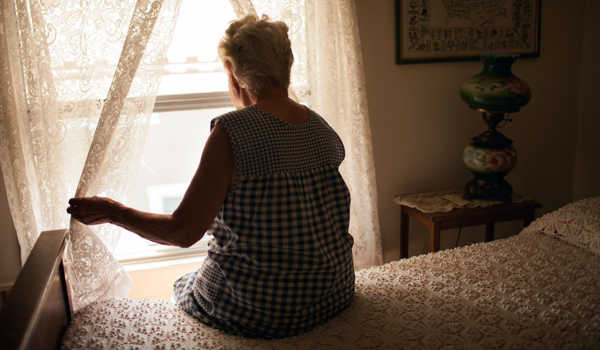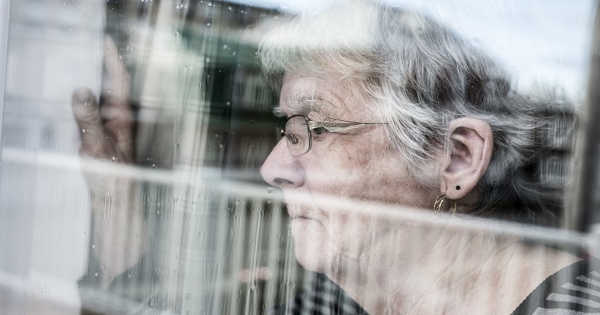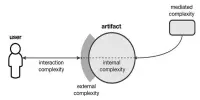According to a new University of Stirling study, social distancing implemented in response to COVID-19 is increasing feelings of loneliness in Scotland’s older population and negatively impacting their wellbeing.
The study discovered a link between an increase in loneliness in people over the age of 60 and a decline in wellbeing and health. According to the study, increasing loneliness due to social distancing was associated with a smaller social network, lower perceived social support, and a decrease in wellbeing.
The findings are the result of research that began in May as part of the Scottish Government’s Chief Scientist Office Rapid Research in the COVID-19 program. Professor Anna Whittaker of the University’s Faculty of Health Sciences and Sport led the research, which she hopes will help to inform virus decision-making and post-pandemic recovery strategies.
“Previous studies have demonstrated the negative effects of social isolation and loneliness,” Professor Whittaker said. This is especially important for older adults, who may have fewer social contacts. We know that social distancing guidelines implemented in response to COVID-19 have limited social activity participation and impacted vulnerable groups, including older adults.
Social distancing introduced in response to COVID-19 is increasing feelings of loneliness in Scotland’s older population and impacting their wellbeing, according to a new study.
“Our research, which included a survey of over 1,400 older people, looked at the impact of social distancing during the pandemic on social activity, loneliness, and wellbeing.” The majority of survey respondents reported that social distancing has caused them to feel more lonely, have less social contact with fewer people, and have less overall social contact.
“We discovered that a larger social network and higher perceived social support appear to be protective against social distancing, loneliness, and poorer health and wellbeing. This emphasizes the importance of addressing loneliness and social contact in older adults, especially during pandemics or situations where isolation is a high risk.”
Eighty-four percent of the 1,429 survey participants were 60 or older, with a social network of five people on average. The participants socialized five days per week, for a total of more than 6.6 hours per week. Fifty-six percent reported that social distancing regulations increased their feelings of loneliness, with scores significantly higher than reported norms; the same level of perceived support; but social contact with fewer people and less social contact overall.
Greater loneliness was associated with a smaller social network, lower perceived social support, and a decrease in the frequency, quality, and amount of social support – as well as a worsening of wellbeing and health.

Physical activity
Using the same survey data, the study looked at the effect of social distance on physical activity. During the lockdown, the majority of participants reported continuing to meet physical activity guidelines, with 35% moderately active and 41% highly active. Walking was the most significant contributor to total physical activity, with slightly more than a quarter (26.4 percent) walking more than before the lockdown. Those who lived in rural areas reported higher levels of physical activity.
When compared to before the lockdown, 40% of people said they were walking less, and a similar proportion was engaging in less moderate physical activity. Those who reported doing less physical activity were less happy.
Individuals who reported no change in moderate physical activity were the most active prior to the lockdown, and those who reported no change in walking had significantly higher levels of total physical activity.
According to Professor Whittaker: “Physical activity engagement varied during a lockdown, and this study found a positive link between physical activity and wellbeing, supporting the idea that physical activity should be considered an important contributor in recovery strategies aimed at older adults as we emerge from the pandemic.
“There appears to be a link between pre-lockdown physical activity and post-lockdown physical activity changes. Given our understanding of the benefits of physical activity in this age group, this may be significant in the context of attempting to get older adults to maintain or increase physical activity, where appropriate, as we emerge from this pandemic.
“Furthermore, regardless of pre-lockdown physical activity, older adults should be encouraged to stay active, particularly through strength and balance training (such as tai chi, yoga, or weights), which was very low in the sample but is critical for maintaining balance and physical function. Only 12% of the sample met the physical activity guidelines, which state that strength training should be done at least twice a week.”
The findings will be presented at the Scottish Physical Activity Research Connections digital conference, which kicks off later this week.
















